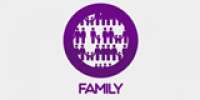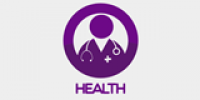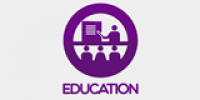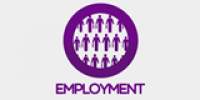Call for proposals: data-collection on the situation of rainbow families in Europe
ILGA-Europe announces the XV call for proposals within its Documentation and Advocacy fund. This call will specifically focus on data-collection regarding the situations of rainbow families, including same-sex couples, families with trans parents and single LGBTI parents, across Europe. It focuses on the lack of recognition and on discriminatory practices when it comes to the partnership and parenting rights of rainbow families. The fund is supported by the government of the Netherlands.
Deadline for applications: 20 November 2015, 18.00 CET.
The general goals of the Documentation and Advocacy Fund are
- to work towards LGBTI equality by gathering evidence of human rights violations and supporting evidence-based advocacy throughout Europe
- to promote documentation of cases of discrimination, hate crimes and other human rights violations against LGBTI people according to the international human rights documentation standards
- to build capacity of LGBTI organisations in Europe to monitor and document human rights violations on the grounds of sexual orientation, gender identity and gender expression
- to enable the use of well-documented information for advocacy purposes at the national level
- to develop methodology and tools that can be replicated in other European countries for collection of reliable information on human rights violations.
Background information regarding the situations of rainbow families across Europe and the lack of recognition and discriminatory practices when it comes to partnership and parenting rights:
As from September 2015, same-sex marriage is in force in eleven European countries, and three more will hopefully follow soon. In addition, nine countries grant similar rights, through registered partnership schemes. Look for more information on Rainbow Europe, www.rainbow-europe.org.
However, this means that 26 out of 49 European countries still discriminate same-sex couples compared to different-sex couples. Same-sex couples are either offered no legal recognition of their partnership at all, or are only granted limited rights, often with limitations regarding adoption rights, in relation to social security schemes or property regimes. Moreover, the opening of marriage and registered partnership to same-sex couples has not necessarily solved situations of discrimination on the ground and rainbow families face day-to-day discrimination in trying to access their rights.
Other rainbow families also face discrimination. Trans people are still forced into divorce in several European countries in order to have their gender legally recognised, thus losing certain rights linked to marriage. Also, LGBTI people who want to form a family as single parent experience discrimination.
Therefore, ILGA-Europe launches this call for proposals, to map the cases of discrimination within European countries.
The specific goal of this call
The call is aimed at allocation of grants to organisations for the specific goal of collecting evidence of human rights violations of rainbow families, including their children. Examples of cases of discrimination include:
- The non-recognition of co-parents of children born to rainbow families or adopted by them.
- The lack of access of rainbow families to adoption and to foster parenting.
- The lack of recognition of the rights of trans parents, in particular when they have gone through a change of legal gender, regarding guardianship, school activities, social benefits, etc.
- The lack of access to reproductive health and rights for rainbow families.
- Forced sterilisation of trans people, disabling them from having children.
- The lack of access to social rights as a partner.
- The lack of access to goods and services accessible to different-sex couples (housing, consumption goods, hotels, etc.).
- Research can also focus on how cases of discrimination have a cross-border aspect (e.g. recognised couples in one country that are discriminated against in another country).
ILGA-Europe intends to award 5 grants of amount from 6,000€ to 7,000 € each. Funding amounts will be determined on the basis of the scope of the project proposal, taking into consideration factors such as geographical scope, existence of co-funding, capacity to absorb funding and costs of living in the concerned country.
Methodology:
This call allows selected applicants to develop data collection skills regarding the situations of rainbow families across Europe. To this end, applicants are encouraged to use methodologies already applied in different researches. More information on the subject can be found here
Other resources could include
- http://www.ohchr.org/Documents/Publications/NHRIHandbook.pdf
- https://www.huridocs.org/our-manuals/
- https://www.gender.hu-berlin.de/de/rainbowchildren/downloads/studie/sioen
Some general (not specifically rainbow) interview guides for family assessments which may be useful include:
- https://www.childwelfare.gov/topics/systemwide/assessment/family-assess/
- http://www.ocwtp.net/PDFs/Trainee%20Resources/Assessor%20Resources/FAMILY%20INTERVIEW%20GUIDE.pdf
- http://www.euromedinfo.eu/doing-a-family-assessment.html/
- https://www.acf.hhs.gov/sites/default/files/cb/family_assessment.pdf
ILGA-Europe’s staff remains available to facilitate information exchange on methodological tools used by its successful applicants. Many of these tools can be found on the ILGA-Europe website at:
http://www.ilga-europe.org/what-we-do/our-work-supporting-movement/funder /daf/tools and http://www.ilga-europe.org/resources/thematic;
Applications should define vocabulary clearly and use it consistently throughout their proposal and project. Examples of definitions can be found in the ILGA-Europe's glossary.
Applications must clearly identify the indicators they are studying and how they will gather, classify and measure the information they intend to collect; See: https://www.huridocs.org/resource/micro-thesauri/ and
http://www.ohchr.org/Documents/Publications/Human_rights_indicators_en.pdf
Applicants are encouraged to team up to increase their know-how through peer-learning, to provide comparative data (between different countries) or to share different perspectives (between different sectors, i.e. LGBTI organisations and mainstream human rights organisations or family organisations).
Eligibility criteria:
Applications from the LGBTI organisations from European region (countries-members of the Council of Europe) are eligible ONLY. List of the eligible countries can be found here.
Under this call ILGA-Europe will support documentation methods and reporting techniques which may include on-line reporting, face-to-face interviews or interviews by phone. ILGA-Europe will also support the publication of the report to be produced as a result of the project. At minimal, all projects should include the collection of data and the production of a report on the basis of the data collected.
Application forms shall include a description of the planned activities and of the chosen reporting methodology. Your proposals will be evaluated taking into account the capacity of your organisation to implement the project.
Information on the advocacy plans that your organisation intends to carry out on the basis of the produced report will be considered as an asset for your application. Organizations are also encouraged to demonstrate how this project will support the building of internal documentation skills in relation to documentation of rainbow families’ situations.
Information on your organisation’s plans to sustain in the long term the reporting and monitoring processes put in place thanks to the grant will be considered as an asset for your application.
Proposals will be accepted from LGBTI organisations officially registered with local authorities or unregistered initiative groups.
The selected applications should:
- Provide a clear methodology and outline what the objectives, added-value and expected outcomes are
- Allow for the documentation of new evidence on LGBTI discriminatory practices in the area of same sex families’ situations documentation
- Enhance data collection skills in the area
- Possibly, provide an opportunity for joint work (peer-learning and/or coaching) between different civil society organisations.
The deadline for the XV call for applications is 20 November 2015, 18.00 CET. Decisions by the Advisory Board on grants awarded will be communicated in early February.
Due to capacity and funding limitations NO applications outside Europe or submitted after the deadline will be accepted.
You can submit your application or ask any questions about the Fund to ILGA-Europe’s Programmes and Policy Officer Boris Balanetkii-Schlütter.
Find the application form here
Be sure to follow the application guidelines EXACTLY. Applications must be made in English. The language of the report and other outputs must be indicated in the proposal. English for all reports is preferred.
ILGA-Europe looks forward to your applications and wishes you luck!

 Print HTML
Print HTML









